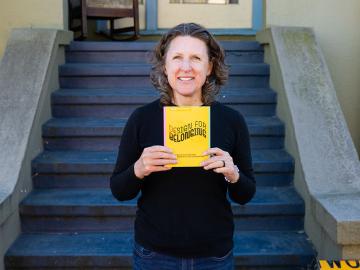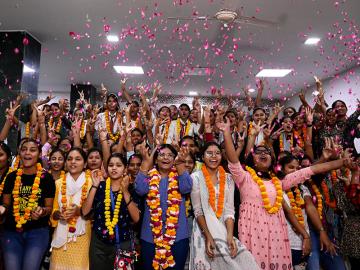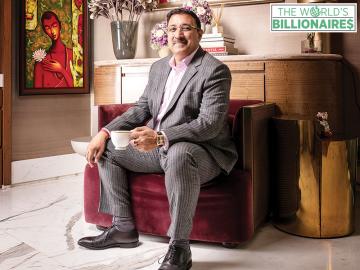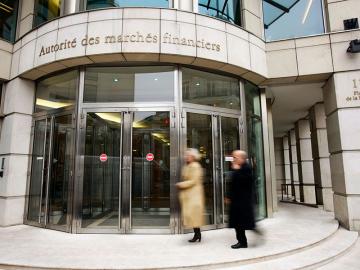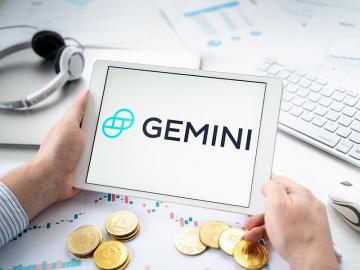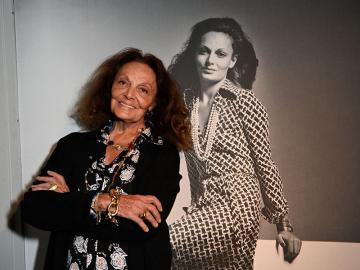How Mark Mascarenhas Redefined Celebrity Management
Mark Mascarenhas changed the game of celebrity management with Worldtel. His biggest and best bet: "My boy" Sachin Tendulkar
Mark Mascarenhas was a big man.
He stood at six-feet two, had broad shoulders, a booming voice, and a laugh that could fill a stadium. It certainly filled his suite at The Oberoi, Mumbai, where he lived each time he jetted into the city from his base in Connecticut.
In time, he set up an office in Worli, but his hotel suite continued to serve as an outpost at Nariman Point and meetings—not to mention food and drinks—flowed into the wee hours. Broadcasters, BCCI mandarins, business enchiladas, they all wanted in on the action at WorldTel: The 10-man David-sized operation that Mark ran like a Goliath.
He cut big deals, wrote big cheques, and wasn’t shy of picking big fights. He took on state broadcasters, cricket boards and corporate heavies with the same impunity with which a Sachin Tendulkar would swat away a Glenn McGrath express delivery.
And that brings us to one of the sweet ironies of Mark’s life. Mr Big’s most defining move was signing on a boyish cricketer who was fondly called ‘the little master’. Maybe it’s because opposites truly attract. Or, more likely, Mark knew he was onto the biggest story in international cricket.
At a time when Sachin’s biggest advertising deal was about Rs 16 lakh a year, Mark signed him up for a five-year contract valued at nearly Rs 25 crore. Sachin was already one of the richest cricketers, but with the WorldTel contract, he hit the ball out of the park. It quickly became the talk of the town: Was it for real? Leave alone turn a profit, would Mark even recover his money? Would he see the contract through or was it just badge value?
While the deal created headlines, Mark busied himself creating a market. He had raised the bar, revised the benchmarks, changed the game, and we were running out of clichés. Meanwhile, there was an important change in Sachin’s on-field game as well. He started to open the batting in one day internationals and did so at his brutal and dominating best. With the entire innings at his disposal, the building blocks were in place for what would eventually add up to a hundred hundreds.
An impressive roster of brands signed on with WorldTel: Adidas, MRF, Philips, Visa to name just a few. Each coughed up in excess of Rs 1 crore for an annual contract. Even old faithfuls like Boost and Pepsi escalated their contracts in line with the new numbers. Mark’s big bet had paid off.
Know Risk Know Reward
Suddenly, everyone wanted to know who Mark Mascarenhas was and where he’d come from. He was an outsider in every way. He grew up in Bangalore and moved to the US.
He worked his way up at CBS and was their top sales guy. (One of the many legends surrounding Mark is that he landed his CBS job by telling his boss he wanted the job as he badly wanted to buy a big car. He got the job and, sooner than later, he got the car.) He went after what he wanted and often got it.
It was only a matter of time before he struck out on his own and used his many CBS bonuses (net of the new car) to start acquiring and trading rights. He couldn’t go for the big ticket items, but did some arbitrage deals in soccer and boxing before scoring a multi-bagger with the Skiing World Cup rights.
Around 1992-93, he heard of the upcoming BCCI bid for broadcast rights of the 1996 cricket World Cup. TWI, a major player in sports production, was already at the table; while they could come up with the money, there was a roadblock in the payment terms. BCCI needed some cash flow upfront and that was the deal-breaker.
It was just the kind of situation Mark revelled in. He upped the numbers, made a down payment (the figures were $10 million and $3 million, respectively), and swiped the deal from under TWI’s nose. Mark doubled his money, earning over $20 million from the 1996 World Cup. He promptly invested in rights across Sharjah, Bangladesh and Sri Lanka.
The Ones That Got Away
Not all of his bets paid off. The cricket World Cup rights got caught in the crosshairs of terrestrial broadcast and Mark found himself in a lawsuit with the state broadcaster, Doordarshan. His love-hate relationship with Jagmohan Dalmiya, the BCCI chief was said to be a charade and insiders said Mark was in fact Dalmiya’s blue-eyed boy, the one who got first dibs at BCCI’s prime properties. (Mark denied this charge.) He fell out with the Sri Lanka cricket board over allegations of manipulation; his response was that there were warring factions in the Sri Lanka board and he was collateral damage.
By the end of the nineties, there were raids on WorldTel’s offices by the CBI and income tax authorities. Mark never discussed these matters in the media, preferring, instead, to say he was not in the wrong and representations were being made before the respective authorities.
And not every hunch of his was an informed one. He started a cricket magazine and cricket website on the assumption that India had a billion people all of whom loved cricket. “So even if I get 10 percent of that number coming to my magazine and website, we’re at a 100 million,” he told this writer at his swanky office at Worli in 2000. He brushed aside all talk of literacy levels, readership of English magazines, internet access and so on. He was all bluster, saying cricket is a religion that cuts across demographics.
He wound up both media properties shortly after, but his hubris was undiminished. “I produced a Rolls Royce when the market needed a bullock cart,” he said in an apparent reference to bandwidth and data speed in India.
Even in player management, he failed to grow his roster beyond Tendulkar. There was a spat and a falling out with Saurav Ganguly, contracts with Ajit Agarkar, Robin Singh, Shane Warne and Shoaib Akhtar went nowhere in particular. And Rahul Dravid was on his wish list but resolutely refused to take the bait.
A perfect Ten
So we come back to Tendulkar and the significance of his WorldTel contract for sport in general, Tendulkar in particular.
Ever since the cricket World Cup victory in 1983, Indian cricket has been on an exponential growth curve. However, while money flowed into BCCI’s coffers, the growth in player salaries was not proportionate and certainly not in keeping with player salaries in other global sports with comparable viewership numbers.
Certainly cricketers earned comfortable salaries, but the chasm between reality and possibility was illustrated by the jump in Sachin’s off-field earnings after signing up with WorldTel. However, in the last two decades, only MS Dhoni and, to a lesser extent, Rahul Dravid, have realised the full extent of their earnings potential.
An entire player management industry was born in WorldTel’s wake. Young turks with family money or venture capital sought to replicate WorldTel’s model. Outsiders fancied their chance. For instance a Kolkata-based sports management company signed on Dhoni prior to the famed 148 against Pakistan. And cricketers started to pocket substantial fees in endorsements and appearances: Not in the tens of crore but eight-digit annual earnings nonetheless.
The age of greed also brought on cricket’s darkest hour and some players, in the absence of lucrative management contracts, resorted to throwing games or fixing matches for money.
Even with Sachin’s legendary talent, it did help that he had a manager who secured him financially. “You focus on your game and leave the rest to me,” Mark had promised Sachin. And he made good on that promise.
Actually, he did one better. Once the first contract ended, Mark renewed his contract with Sachin for a whopping Rs 100 crore. Ten years earlier, Mark had paid around Rs 50 crore for the rights to the cricket World Cup. Now, he was pinning twice the amount on just one player, even if he was, arguably, the greatest of them all.
As a businessman, Mark’s track record was chequered. Even as a manager, he had his share of misses. But as Sachin’s manager, he scored a perfect 10. He honoured his financial commitments no matter how staggering they first seemed. He kept his word and let Sachin focus on the game to the exclusion of all else. During that fateful World Cup in 1999, when Sachin lost his father and had to leave midway through the tournament, Mark made all the travel arrangements and stood by him like a rock knowing there was little else he could do.
Sachin, to him, was always “My boy”: “My boy will take us through,” he said in Sharjah in 1998 when India were all but knocked out of the Coca-Cola Cup. When Sachin played a whirlwind knock and almost single-handedly helped India qualify, Mark immediately negotiated a bonus for his “boy”, a shiny red custom-fitted Mercedes, no less.
He spoke of Sachin like he would of his own children. And he shielded them all in every way. He continued to be a warrior in business but one part of him was the nurturer. For all the media attention he received, Mark never let any pictures of his family make it to the media. They remained cocooned far away in Connecticut. And for all the allegations and investigations splattered on WorldTel, he made sure Sachin remained ring-fenced. Sure, he had invested a billion rupees in his key client, but he knew, more importantly, that a billion hopes rode on Sachin.
He was protective about players in general. His parties would start at 7 pm so the cricketers could retire by 8 pm. He ensured no alcohol was served until the players exited the party.
The Indelible Mark
Today, there’s a lot more money in the game and even more riding on the game. Sony paid a billion dollars for the broadcast rights to IPL. Current IPL player salaries make the first WorldTel contract look like chump change. Many a manager tries to replicate Mark’s art of the schmooze, his swagger, his manner. But they forget that his core was strong and he always put the player at the centre.
For instance, an unknown firm with no track record or known source of capital announced a Rs 200 crore deal with Dhoni in a move that smacked of Mark, but it lacked any credibility. The firm’s credibility was further dented when Dhoni’s stake in the company raised conflict issues, given that the firm managed other players. Perhaps they should have said that Rs 200 crore was the revenue target (a number that looks like a walk in the park given Forbes India reported Dhoni’s earnings at Rs 135.16 crore). But a firm that imperils Dhoni’s solid reputation does him a great disservice. A classic case of learning all the wrong lessons from Mark.
For better and for worse, Mark changed Indian sport forever. He was one of only 20 individuals Sachin mentioned in his instantly legendary retirement speech. Sachin, for his part, did the gentlemanly thing and stayed with WorldTel right until 2006 when the contract ended (four years after Mark passed away in a car crash).
Yes, Mark Mascarenhas was a big man at over six feet in his lifetime. And, in some ways, he’s an even bigger man today at six feet under.
Vivek Kamath is co-founder of Matrix, one of India’s leading celebrity management firms. Matrix worked closely with WorldTel on a few projects for Sachin Tendulkar
Check out our Festive offers upto Rs.1000/- off website prices on subscriptions + Gift card worth Rs 500/- from Eatbetterco.com. Click here to know more.
(This story appears in the 27 December, 2013 issue of Forbes India. To visit our Archives, click here.)
-
Bala
nice post
on Oct 14, 2014 -
Brian Anthony
Good article....good job done!
on Oct 9, 2014 -
Chinmay
Amazing article...restores faith in the art of investigative journalism...
on Dec 27, 2013

